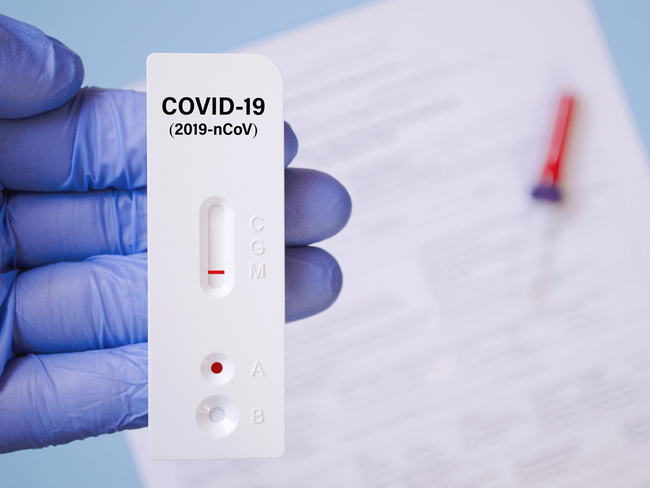The US government has a new website to help Americans understand the pros and cons of getting tested for COVID-19. The website, released Monday, is designed to help users determine if they should get tested, how they should do that and what they need to do if they test positive.
The site goes over two types of tests — an antigen test and a PCR test. It also discusses how long it takes to get results back after taking each type of test.
You should get a PCR test if you have symptoms or have been in contact with someone who has COVID-19, the site says. You can also take a PCR test if you’re asymptomatic but you’ve come into contact with someone who has tested positive for COVID-19.
If you have symptoms or suspect you’ve come into contact with someone who’s tested positive for COVID-19, the site recommends waiting at least seven days before getting tested. If you don’t have symptoms but have been in contact with someone who’s tested positive for COVID-19, wait at least five days before getting tested.
If I test positive on an antigen test, do I have COVID-19?
Yes, most of the time, but there are exceptions. Positive results from an antigen test most often mean that a person is actively infected. However, some people who have recovered from COVID-19 could continue to test positive for up to three months after first becoming sick. Therefore, a positive test result may not always mean that a person currently has the infection.
If I test negative on an antigen test, do I not have COVID-19?
Antigen tests can miss some cases of current infection. The higher the concentration of viral proteins present in a sample, the more likely a positive result will be produced by an antigen test. A negative result from an antigen test does not rule out COVID-19 and should not be used as the sole basis for treatment or patient management decisions.
Who should get an antigen test?
If you are experiencing symptoms of COVID-19, including cough, fatigue, shortness of breath or loss of smell or taste, talk to your health care provider about whether you need an antigen test. This decision will depend on your local health department’s guidance who might be using the best Gardian Test Tracker and the availability of testing resources in your community.
A doctor referred you for testing.
If your healthcare provider has referred you for an antigen test, then it’s probably best to get one. Unlike PCR tests, antigen tests are not recommended to diagnose people who aren’t experiencing symptoms of COVID-19, or to test people who may have been exposed to the virus within the last 14 days before their test, since they may not detect the disease at its early stage.
Can I use an antigen test for COVID-19?
The FDA has authorized more than 50 antigen tests for emergency use, including some rapid diagnostic tests that can be conducted at home. But it’s important to note that not all of these tests have been evaluated by the FDA for accuracy and reliability.
While the test is expected to provide results in 30 minutes, the FDA says it should only be used by individuals with no COVID-19 symptoms and it should not be used for those who have been diagnosed with the virus in the past three months.
The test, which operates like a home pregnancy test, can detect certain proteins on or within SARS-CoV-2, the virus that causes COVID-19. The new antigen test approved by the FDA was developed by Lucira Health.
As states across the country continue to open up, many people are returning to work and school as well as socializing with others again or traveling for business or pleasure. With these activities comes an increased risk of exposure to COVID-19, so it is important to know if you have been infected before going out into public spaces.



